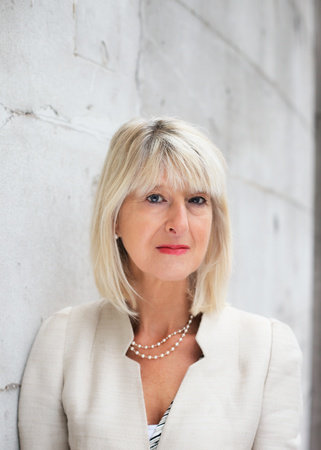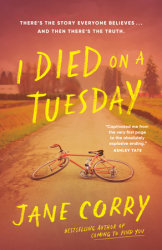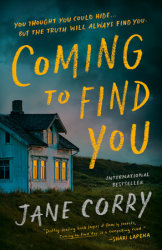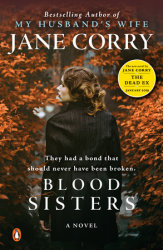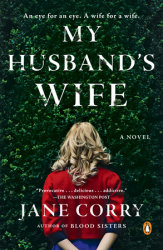Jane Corry is an author and journalist who has spent time as the writer in residence of a high-security prison for men — an experience that helped inspire My Husband’s Wife, her thriller that’s discussed below. We caught up with her as her book hit shelves to ask her about her writing experience, reading tastes, and more. Read on, and be sure to check out her latest book as well: Blood Sisters, out in January 2018.
PENGUIN RANDOM HOUSE: To what extent does your writing in My Husband’s Wife reflect your own experience?
JANE CORRY: I couldn’t have written My Husband’s Wife without having worked as a writer in residence of a high security male prison. Prison is a world that you need to taste for yourself if you are going to describe it. You can’t re-create it in fiction from merely talking to others or reading about it. Similarly, my experience of marriage (twice at the altar!) has played its part. I happen to get on very well with my first husband’s wife. And my second husband gets on well with my first husband. But divorce and marriage have made me look at family dynamics in a new light. Enter Lily and Carla: my two heroines!
PRH: Faulkner said a writer needs three things: experience, observation, and imagination. Do you use all three equally, or rely on one over another?
JC: I use all three. You need experience of life to write about it. But you don’t necessarily have to be “grown up.” When I was a teenager, I yearned to write a novel. But I used to think I needed more years under my belt. Now I know that’s not true. It’s the type of experiences you have – rather than the quantity – that make a story. It’s also the way you interpret them. Observation is key too. How can you describe a man walking down the street if you haven’t watched the manner in which someone moves? Does he slouch or walk as though he’s being pulled upright by a piece of string? Does she teeter on her heels or stride? Imagination is the magic dust. You can’t buy it. You are blessed with it. I give daily thanks for mine. In my view, these three qualities are joined at the hip. They work together, like a good family.
PRH: Think back to when you published your first book. What surprised you most about the process?
JC: I thought that when a book was accepted, it just got printed and put on the shelves. How wrong I was! I was amazed by all the different processes that come after the signing of the contract. The editorial notes; the copyeditor’s queries; the marketing; the social media; the interviews; and that little voice inside you that says, I’ve got another idea. Write me! Now! In fact, I’ve learned to love all these stages. It’s part of making the best book that you can. I am also bowled over by the wonderful teamwork that is part of Penguin’s fabulous trademark.
PRH: When choosing what to read, what grabs your attention most often?
JC: The coverline and title, the blurb, the cover, and the author’s name. If it’s a favorite writer (such as Jojo Moyes), I will devour it immediately. But as a journalist, I am also drawn to the words on the cover as well as the picture. I don’t like opening books before buying them in case I damage the spine. So I resist the temptation to turn to the opening chapter. Instead, I read the blurb on the back. That’s why it’s crucial to get it right.
PRH: What’s your writing routine? Where, when, and how does it happen?
JC: I get up at seven AM and take the dog for a walk. Then I’ll swim (either in the sea or a local hotel pool, depending on the weather) and have breakfast with my husband. By ten AM, I’m at my desk at the top of our house. My study has a view of the sea and my dog sleeps on the sofa behind me. I write until lunchtime. I’m in a world of my own. Yeats called it “automatic writing” when the words just come out. I do have a plot outline in my head but it’s important for my characters to have flexibility. I begin each day by reading the previous chapter and editing it lightly to get me into the zone. After I’ve finished the first draft, I’ll do at least three more to ensure continuity of plot, character depth, timelines, etc.
Silence is crucial to me when I’m working. My second husband, family, and friends have learned not to interrupt! However, six months ago, I started looking after my baby granddaughter for two days a week so my daughter could go back to work. On those days, I work when she has her daytime naps and also in the evening when she’s gone home. It reminds me of the time when I was a full-time freelance journalist, bringing up three children and writing regular magazine and newspaper columns! People ask me how I manage but I consider it a real privilege to have this special time with my granddaughter. She has also broadened my horizons as a writer because I now understand that deep love between the generations.
